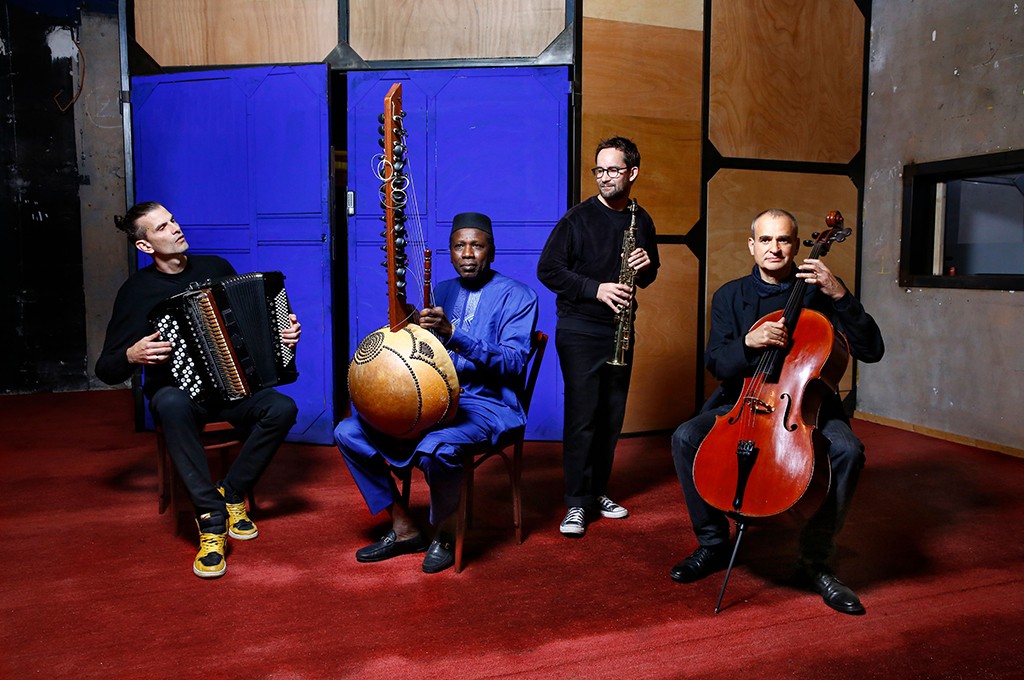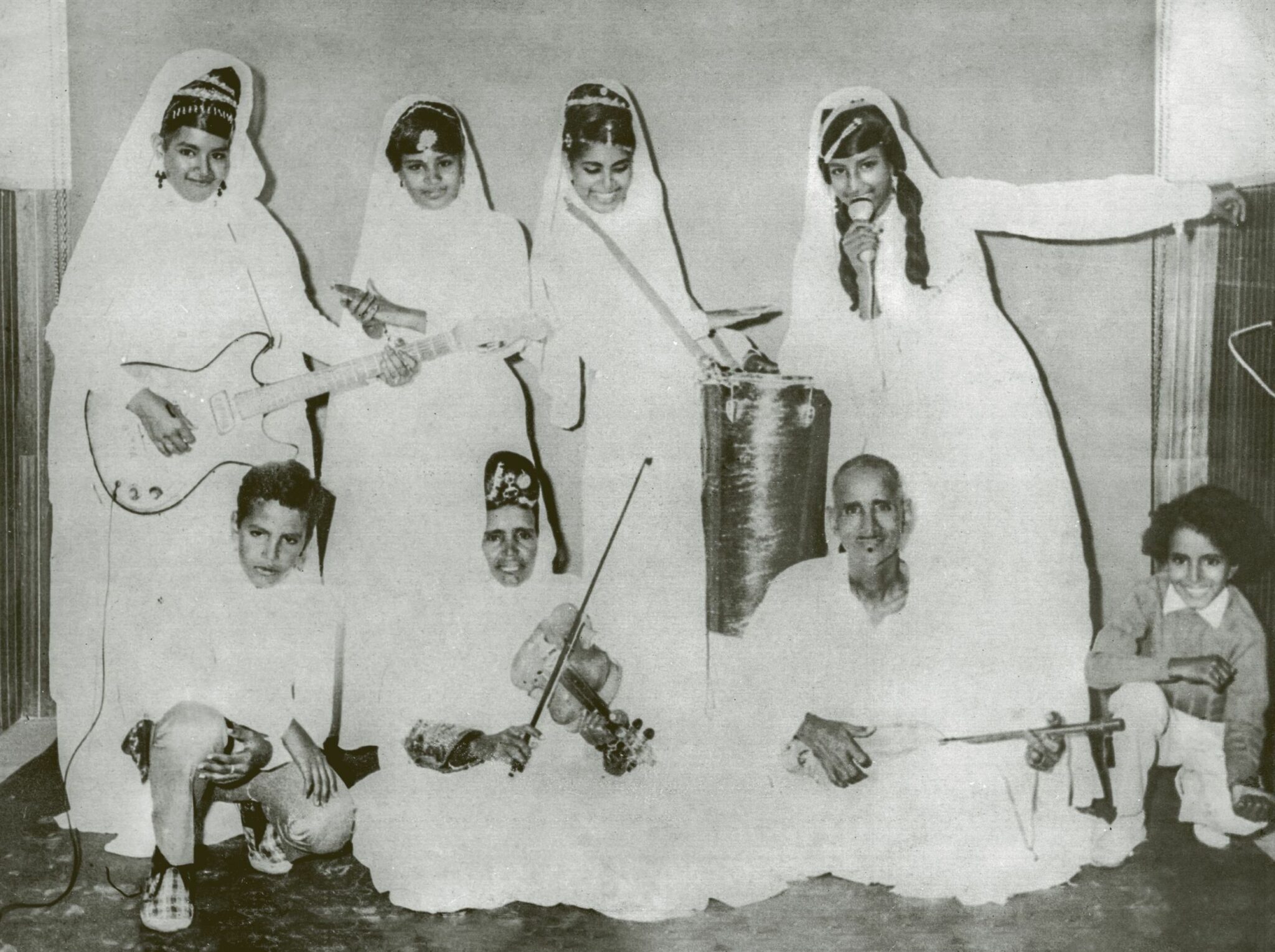Skalap
Well-Known Member
Ay Ay Sailors!
We continue sailing and you can see water west and sand east, two non-ending oceans. Hard to believe this place is home for so many great musicians and a kind of blues called Tichoumaren. It is the music of the ishumars ("the young people"), which designates the generation of Tuaregs who experienced drought, the repression of the rebellion of 1963-64 in the Adagh then exile, then the camps training in Libya in the 1970s-1990s. In Tamacheq, there is a word for this musical current: Assouf, which means nostalgia (Porttuguese word Saudade is a synonym of Assouf ).
The precursor group, which also gave this music its international notoriety, is Tinariwen, officially founded in 1982 in Tamanrasset in Algeria by Intayaden and Abraibon.Their first paid concert was in Sebha in Libya in 1980. To the sound of acoustic and electric guitars, they carried the demands of their people during the Tuareg rebellion of the 1990s, thus making music a weapon, to the point that Mali and Niger governments prohibit listening. Despite the threats, the clandestine tapes circulate throughout the Tuareg country, spreading messages of revolt in Tamacheq, calling on young men to take up arms. Today, the peace agreements have been signed and it is as living legends that they give concerts in their country and around the world. The international reputation of the group Tinariwen goes back in particular to the first concerts in France at the beginning of the 2000s, following their meeting with the group Lo'Jo then their collaborations with rock stars such as Carlos Santana or Robert Plant, and even their participation in concerts alongside the Rolling Stones or the Red Hot Chili Peppers.
Other groups were then formed in the various areas of the Sahara: Takrist n'Akal formed in Libya in 1987, Toumast in Niger in the 1990s, Tamikrest in Mali in 2006, Mdou Moctar in Niger from 2008, ... If Eddie Van Halen grew up in a small village in West Africa, he might have sounded a little like Mdou Moctar, the guitarist whose innovative blend of Tuareg desert blues, full-blast noise and electro-tinged field recordings come wrapped in some of the fiercest axe shredding modern music has ever heard. Raised in a village in central Niger, Moctar taught himself how to play on a self-made guitar, welding traditional Tuareg desert rock to his own wildly unique variations. After Moctar’s early music went viral on a West African cellphone network, the singer-songwriter’s tracks were compiled on 2013’s Afelan, his second album, which showcased his field recordings and Hendrix-channeling electric guitar style. Recorded in Detroit, 2019’s sonically adventurous Ilana drew rave reviews for its psychedelic pyrotechnics, while 2021’s explosive Afrique Victime – one of the year’s most acclaimed records – expanded Moctar’s musical palette with a dazzling array of sounds.

We continue sailing and you can see water west and sand east, two non-ending oceans. Hard to believe this place is home for so many great musicians and a kind of blues called Tichoumaren. It is the music of the ishumars ("the young people"), which designates the generation of Tuaregs who experienced drought, the repression of the rebellion of 1963-64 in the Adagh then exile, then the camps training in Libya in the 1970s-1990s. In Tamacheq, there is a word for this musical current: Assouf, which means nostalgia (Porttuguese word Saudade is a synonym of Assouf ).
The precursor group, which also gave this music its international notoriety, is Tinariwen, officially founded in 1982 in Tamanrasset in Algeria by Intayaden and Abraibon.Their first paid concert was in Sebha in Libya in 1980. To the sound of acoustic and electric guitars, they carried the demands of their people during the Tuareg rebellion of the 1990s, thus making music a weapon, to the point that Mali and Niger governments prohibit listening. Despite the threats, the clandestine tapes circulate throughout the Tuareg country, spreading messages of revolt in Tamacheq, calling on young men to take up arms. Today, the peace agreements have been signed and it is as living legends that they give concerts in their country and around the world. The international reputation of the group Tinariwen goes back in particular to the first concerts in France at the beginning of the 2000s, following their meeting with the group Lo'Jo then their collaborations with rock stars such as Carlos Santana or Robert Plant, and even their participation in concerts alongside the Rolling Stones or the Red Hot Chili Peppers.
Other groups were then formed in the various areas of the Sahara: Takrist n'Akal formed in Libya in 1987, Toumast in Niger in the 1990s, Tamikrest in Mali in 2006, Mdou Moctar in Niger from 2008, ... If Eddie Van Halen grew up in a small village in West Africa, he might have sounded a little like Mdou Moctar, the guitarist whose innovative blend of Tuareg desert blues, full-blast noise and electro-tinged field recordings come wrapped in some of the fiercest axe shredding modern music has ever heard. Raised in a village in central Niger, Moctar taught himself how to play on a self-made guitar, welding traditional Tuareg desert rock to his own wildly unique variations. After Moctar’s early music went viral on a West African cellphone network, the singer-songwriter’s tracks were compiled on 2013’s Afelan, his second album, which showcased his field recordings and Hendrix-channeling electric guitar style. Recorded in Detroit, 2019’s sonically adventurous Ilana drew rave reviews for its psychedelic pyrotechnics, while 2021’s explosive Afrique Victime – one of the year’s most acclaimed records – expanded Moctar’s musical palette with a dazzling array of sounds.
Enough for today but I'll tell you more about Desert Blues tomorrow. Crazy to think that even if the most isolated parts of the world, there is always someone making something new with a couple instruments. I can't recommend enough to fall into the Analog Africa rabbit hole as on top of the excellent music they release, there are always tons of stories to read that helps to understand better how music is and was made in Africa. Meanwhile be careful because it seems ocean is rough tonight!

See you tomorrow!



